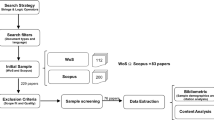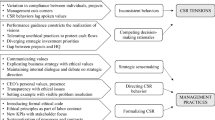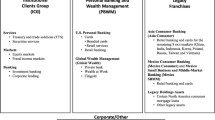Abstract
Large organizational projects must integrate the specific and dispersed knowledge of many individuals and groups to succeed. Thus, frequent exchanges between the project team and the organization's members are required. In this context, understanding of the knowledge integration process during cross-functional projects can be enhanced through the conceptual framework of social capital. A qualitative investigation of a French small firm conceptualizes knowledge integration as a three-phase model: collection, interpretation, and assimilation. The case shows that the integration process is cyclical with overlaps and inter-dependencies among the phases. This study leads to refinement of the social capital role in knowledge integration and reveals the dynamics of internal and external facets of social capital. That is, internal and external social capital play differentiated roles depending on the three phases of the knowledge integration process. Finally, the study reveals the co-evolution of social capital and knowledge integration as a resulting long-term effect.


Similar content being viewed by others
References
Adler P and Kwon SW (2002) Social capital: prospects for a new concept. Academy of Management Review 27 (2), 17–40.
Alavi M and Tiwana A (2002) Knowledge integration in virtual teams: the potential role of KMS. Journal of the American Society for Information Science & Technology 53 (12), 1029–1037.
Becker M (2001) Managing dispersed knowledge: organizational problems, managerial strategies and their effectiveness. Journal of Management Studies 38 (7), 1037–1051.
Bhandar M, Pan SL and Tan B (2007) Towards understanding the roles of social capital in knowledge integration: a case study of a collaborative information systems project. Journal of the American Society for Information Science & Technology 58 (2), 263–274.
Carlile P and Rebentisch E (2003) Into the black box: the knowledge transformation cycle. Management Science 49 (9), 1180–1195.
Crossan M, Lane H and White R (1999) An organizational learning framework: from intuition to institution. Academy of Management Review 24 (3), 522–537.
Edelman L-F, Bresnen M, Newell S, Scarbrough H and Swan J (2004) The benefits and pitfalls of social capital: empirical evidence from two organizations in the United Kingdom. British Journal of Management 15 (1), 59–69.
El Louadi M (2008) Knowledge heterogeneity and social network analysis – towards conceptual and measurement clarifications. Knowledge Management Research & Practice 6 (3), 199–213.
Enberg C, Lindkvist L and Tell F (2006) Exploring the dynamics of knowledge integration – acting and interacting in project teams. Management Learning 37 (2), 143–165.
Fong P (2003) Knowledge creation in multidisciplinary project teams: an empirical study of the processes and their dynamic interrelationships. International Journal of Project Management 21 (7), 479–486.
Grant R (1996) Prospering in dynamically-competitive environments: organizational capability as knowledge integration. Organization Science 7 (4), 375–387.
Huang J and Newell S (2003) Knowledge integration processes and dynamics within the context of cross-functional projects. International Journal of Project Management 21 (3), 167–177.
Inkpen AC and Crossan M (1995) Believing is seeing: organizational learning in joint-ventures. Journal of Management Studies 32 (5), 595–618.
Inkpen A and Dinur A (1998) Knowledge management processes and international joint ventures. Organization Science 9 (4), 454–469.
Kianto A and Jaakowski J (2010) Linking social capital to organizational growth. Knowledge Management Research & Practice 8 (1), 4–14.
Kogut B and Zander U (1992) Knowledge of the firm, combinative capabilities, and the replication of technology. Organization Science 3 (3), 383–397.
Leonard-Barton D (1995) Wellsprings of Knowledge: Building and Sustaining the Sources of Innovation. Harvard Business School Press, Boston.
Locke A (1999) Some reservations about social capital. Academy of Management Review 24 (1), 8–11.
Maaninen-Olsson E, Wismen M and Carlsson S (2008) Permanent and temporary work practices: knowledge integration and the meaning of boundary activities. Knowledge Management Research & Practice 6 (4), 260–273.
Maurer I and Ebers M (2006) Dynamics of social capital and their performance implications: lessons from biotechnology start-up. Administrative Science Quarterly 51 (2), 262–292.
Miles M and Huberman M (1994) Qualitative Data Analysis – An Expanded Sourcebook, 2nd edn, Sage, Newbury Park, CA.
Nah F and Lau LS (2001) Critical factors for successful implementation of enterprise systems. Business Process Management Journal 7 (3), 285–296.
Nahapiet J and Ghoshal S (1998) Social capital, intellectual capital, and the organizational advantage. Academy of Management Review 23 (2), 242–266.
Newell S, Tansley C and Huang J (2004) Social capital and knowledge integration in an ERP project team: the importance of bridging AND bonding. British Journal of Management 15 (1), 43–57.
Nonaka I (1994) A dynamic theory of organizational knowledge creation. Organization Science 5 (1), 14–37.
Nonaka I and Takeuchi H (1995) The Knowledge-Creating Company. Oxford University Press, Oxford.
Okhuysen G and Eisenhardt K (2002) Integrating knowledge in groups: how formal interventions enable flexibility. Organization Science 13 (4), 370–386.
Organization Studies Special Issue (2004) Project-based organizations, embeddedness and repositories of knowledge. Organization Studies 25 (9), 1474–1648.
Payne GT, Moore C, Griffis S and Autry C (2011) Multilevel challenges and opportunities in social capital research. Journal of Management 37 (2), 491–520.
Reich BH, Gemino A and Sauer C (2008) Modeling the knowledge perspective of IT projects. Project Management Journal 39 (S1), S4–S14.
Sabherwal R and Becerra-Fernandez I (2005) Integrating specific knowledge: insights from the Kennedy space center. IEEE Transactions on Engineering Management 52 (3), 301–315.
Schmickl C and Kieser A (2008) How much do specialists have to learn from each other when they jointly develop radical product innovations? Research Policy 37 (3), 473–491.
Sherif H, Hoffman J and Thomas B (2006) Can technology build organizational social capital? The case of a global IT consulting firm. Information & Management 43 (7), 795–804.
Spender JC (2008) Organizational learning and knowledge management: whence and whither? Management Learning 39 (2), 159–176.
Sydow J, Lindkvist L and DeFillippi R (2004) Project-based organizations, embeddedness and repositories of knowledge: editorial. Organizations Studies 25 (9), 1475–1489.
Swan J, Scarbrough H and Newell S (2010) Why don’t (or do) organizations learn from projects? Management Learning 41 (3), 325–344.
Tell F (2011) Knowledge integration and innovation: a survey of the field. In Knowledge Integration and Innovation: Critical Challenges Facing International Technology-Based Firms (Bergek A, Hobday M, Berggren C, Bengtsson L and Söderlund J, Eds), pp 25–69, Oxford University Press, Oxford.
Tsai W and Ghoshal S (1998) Social capital and value creation: the role of intrafirm networks. Academy of Management Journal 41 (4), 464–476.
Wang JK, Ashleigh M and Meyer E (2006) Knowledge sharing and team trustworthiness: it's all about social ties! Knowledge Management Research & Practice 4 (3), 175–186.
Yin R (2003) Case Study Research: Design and Methods, 3rd edn, Sage Publication, London.
Author information
Authors and Affiliations
Corresponding author
Rights and permissions
About this article
Cite this article
Sargis Roussel, C., Deltour, F. Beyond cross-functional teams: knowledge integration during organizational projects and the role of social capital. Knowl Manage Res Pract 10, 128–140 (2012). https://doi.org/10.1057/kmrp.2011.45
Received:
Revised:
Accepted:
Published:
Issue Date:
DOI: https://doi.org/10.1057/kmrp.2011.45




